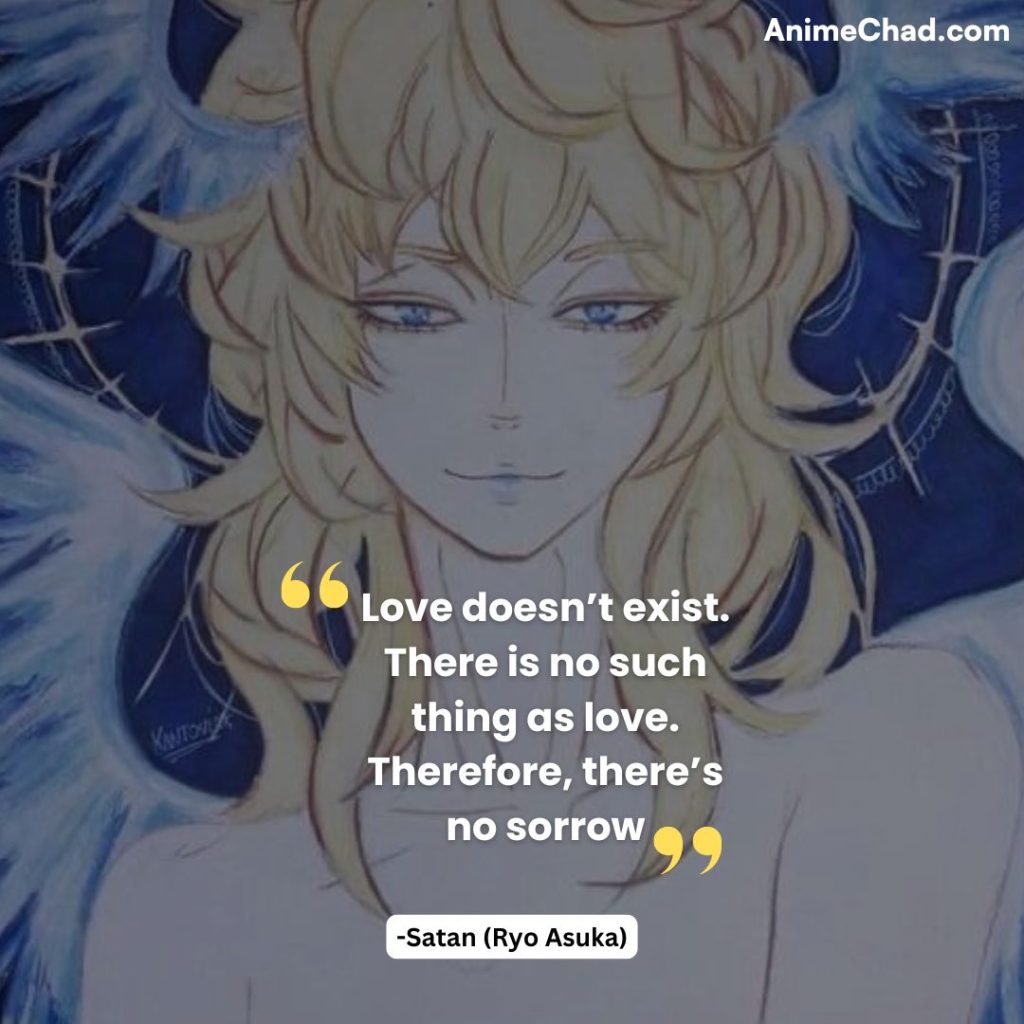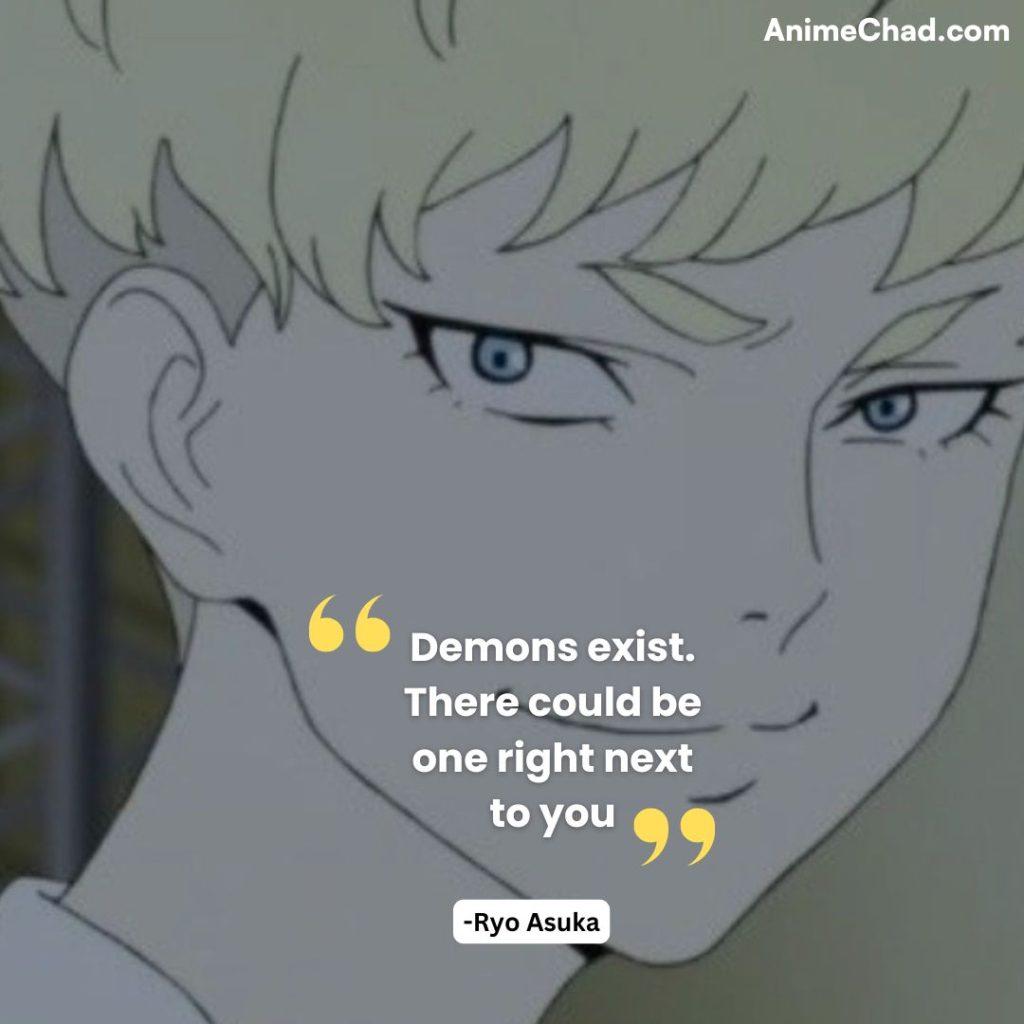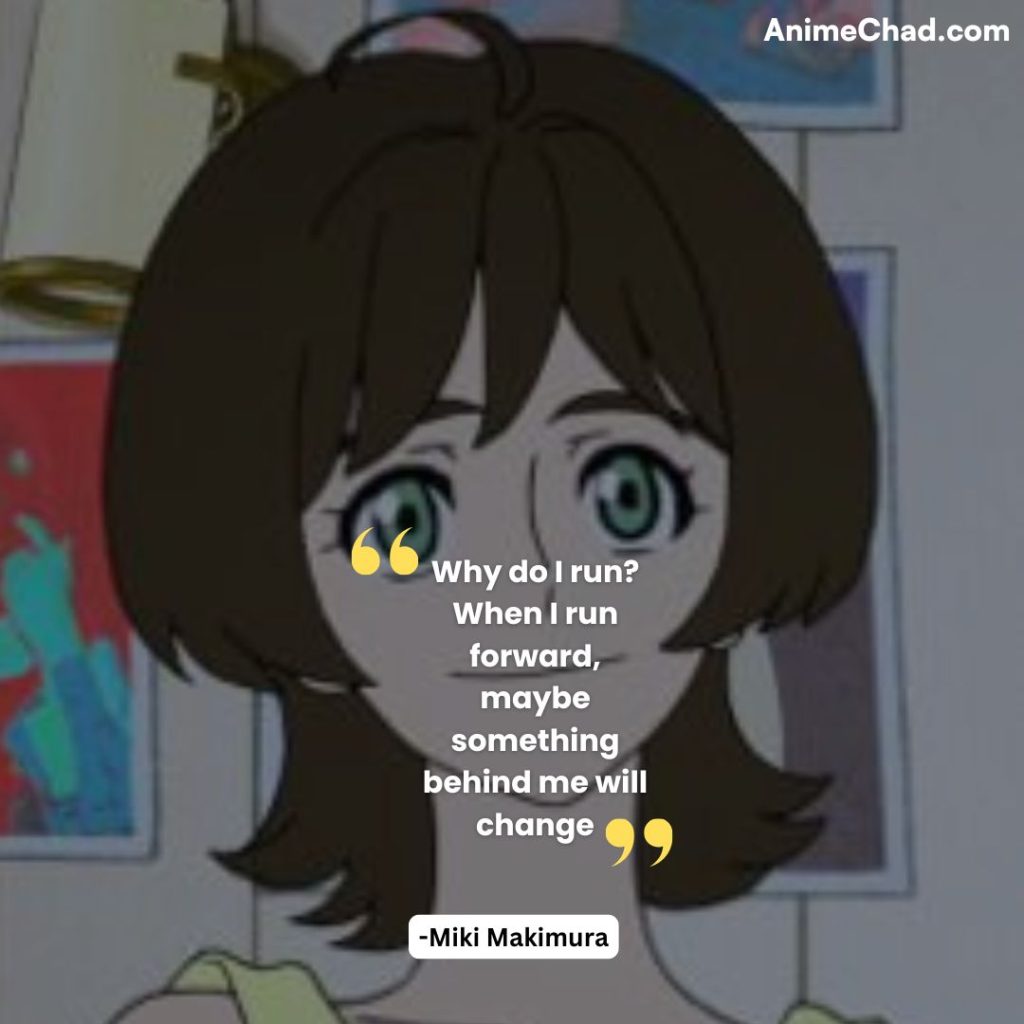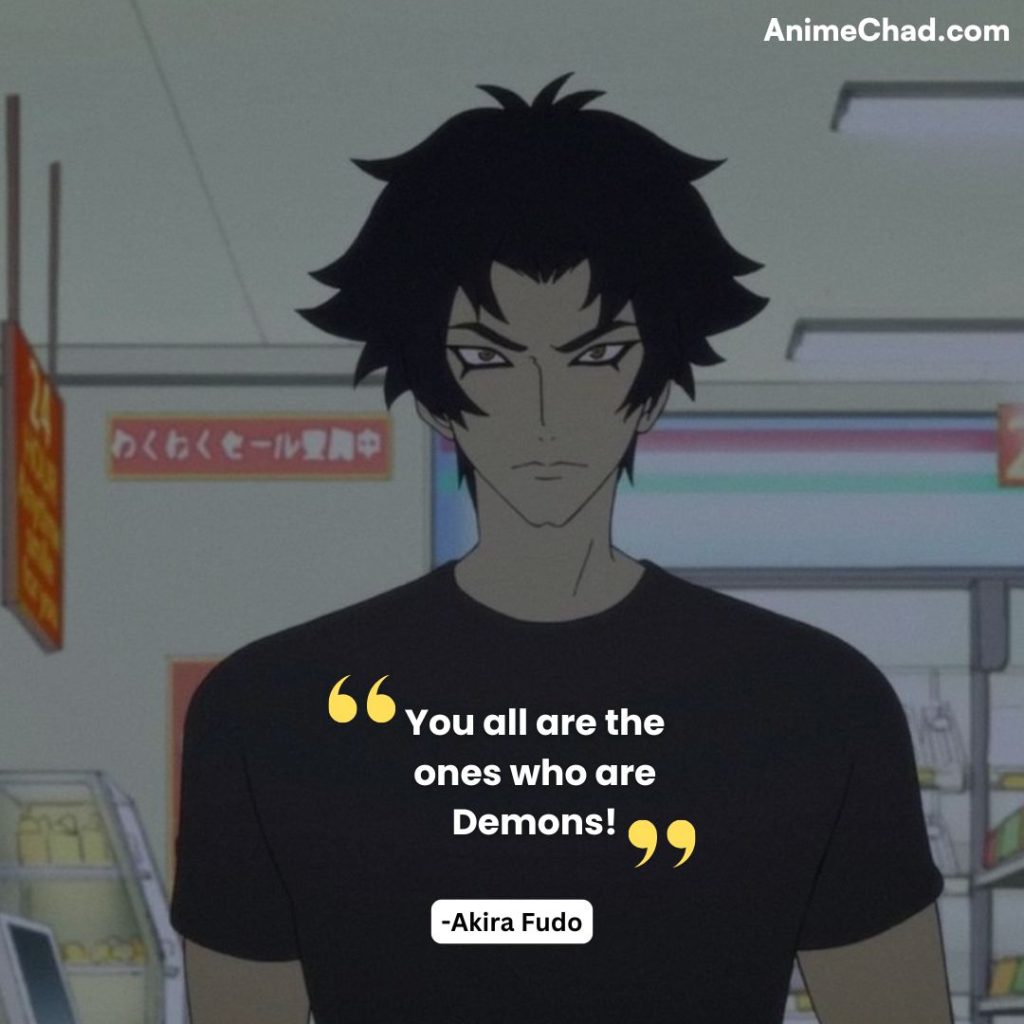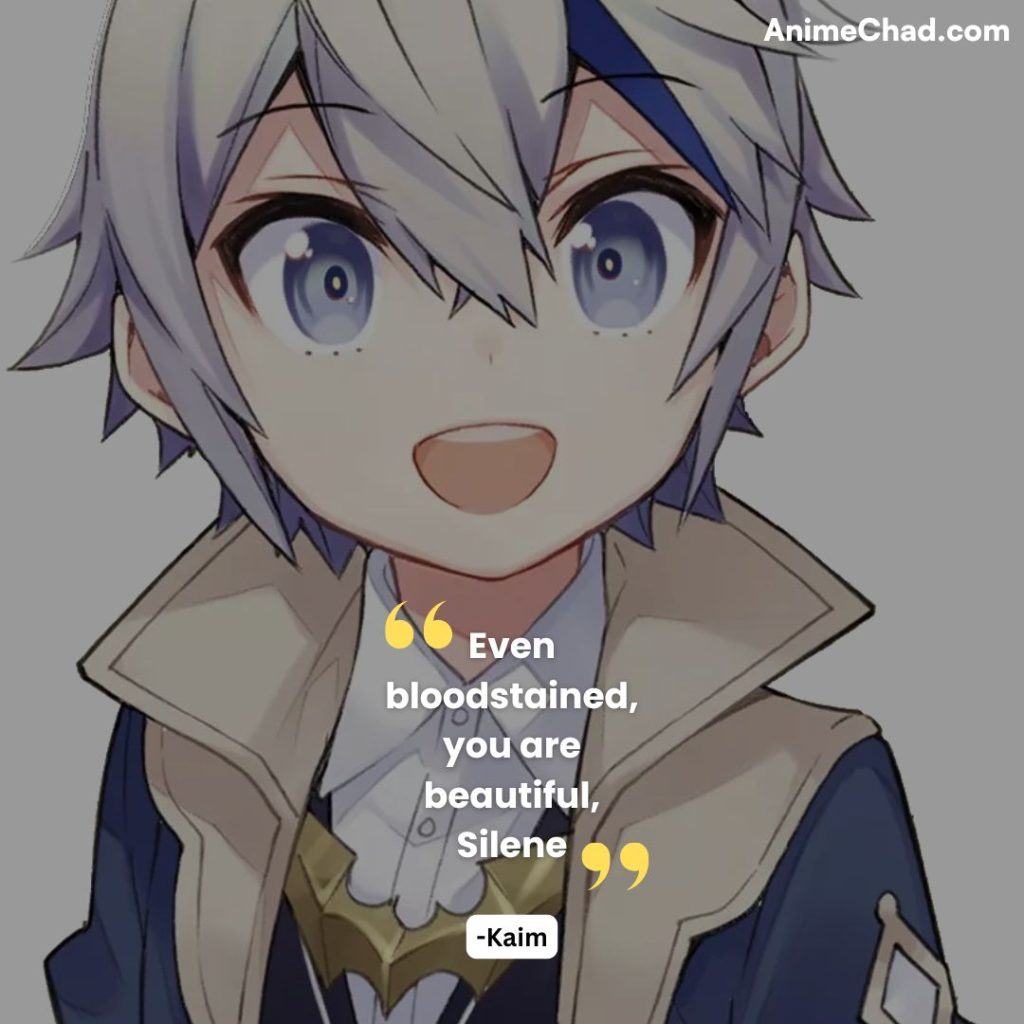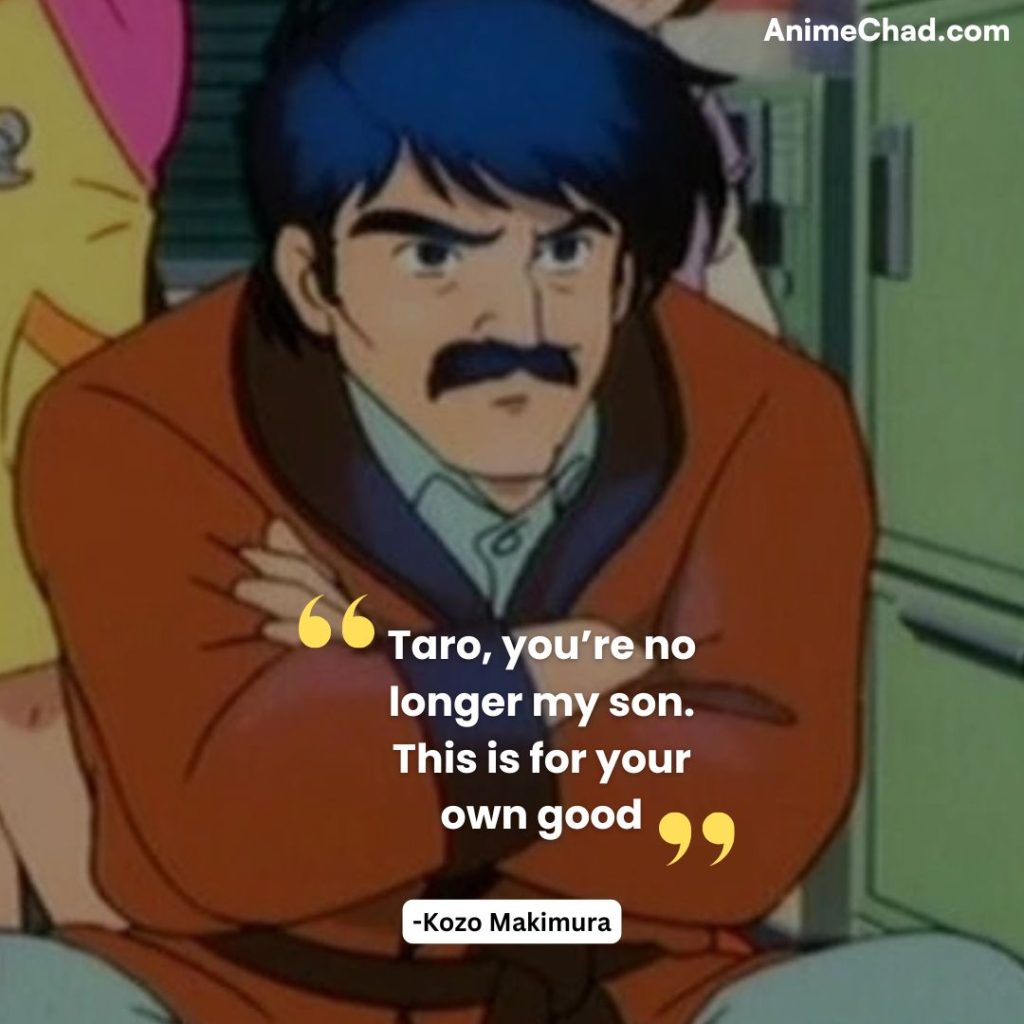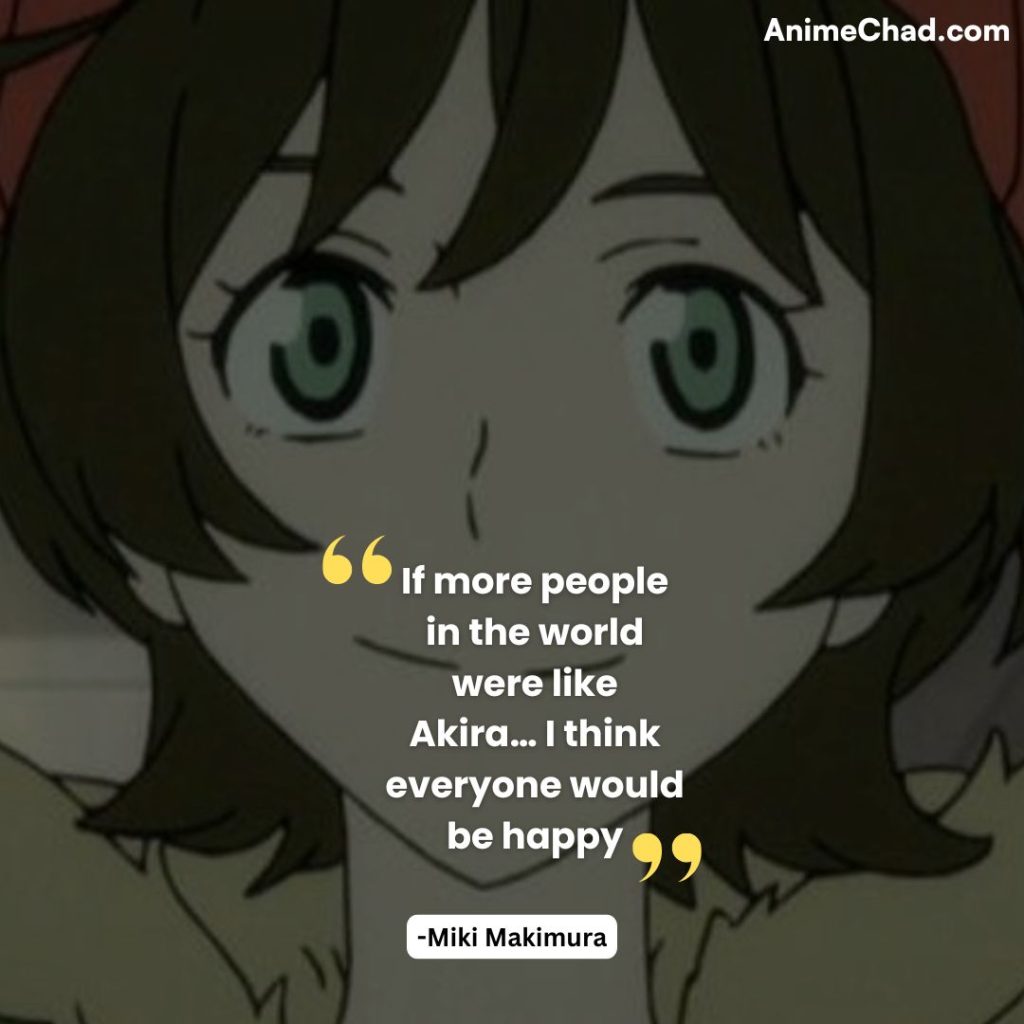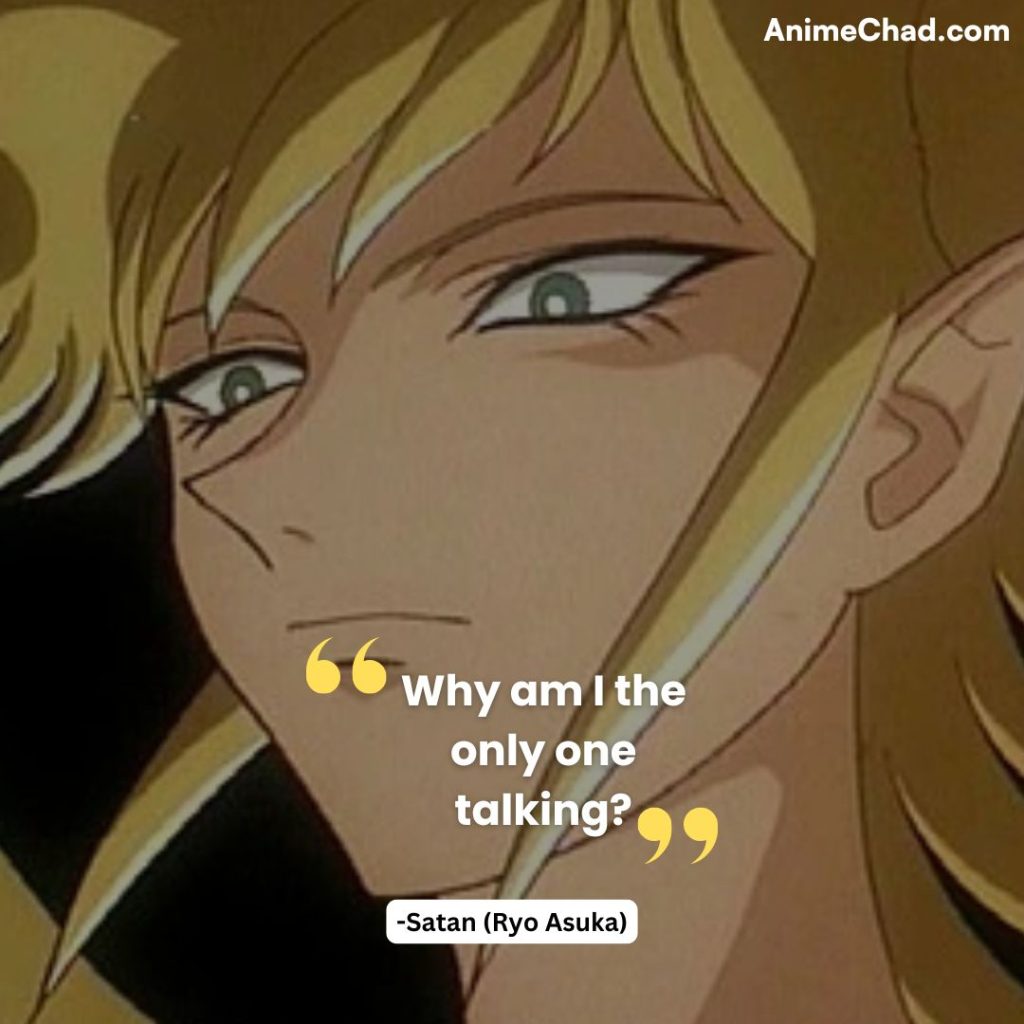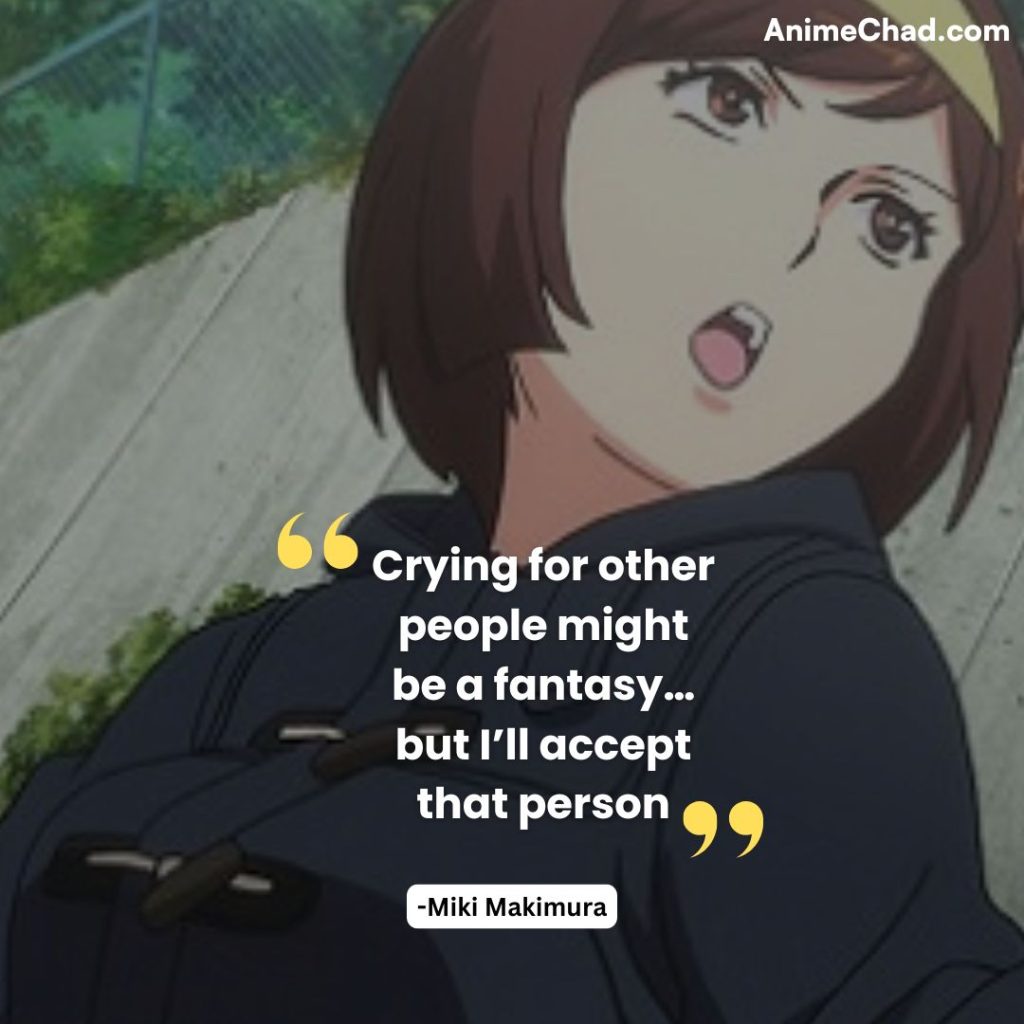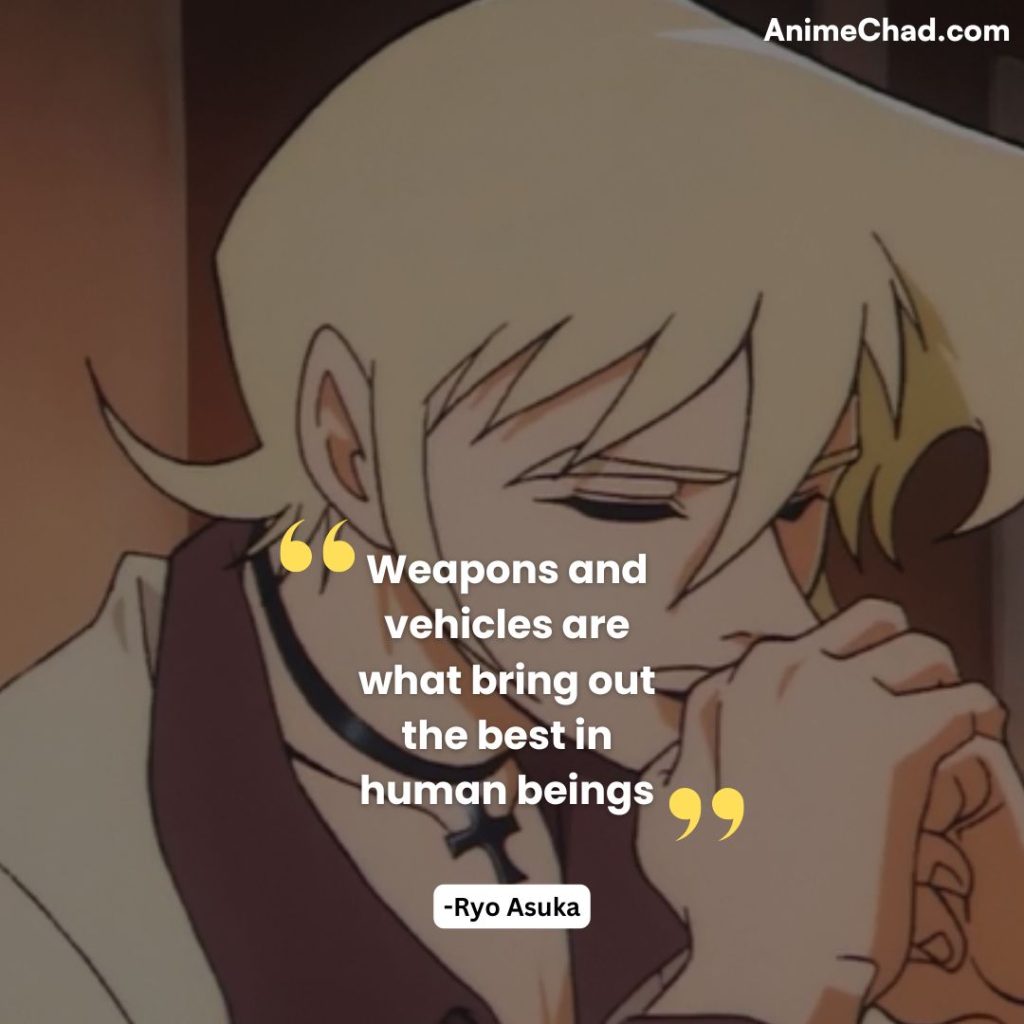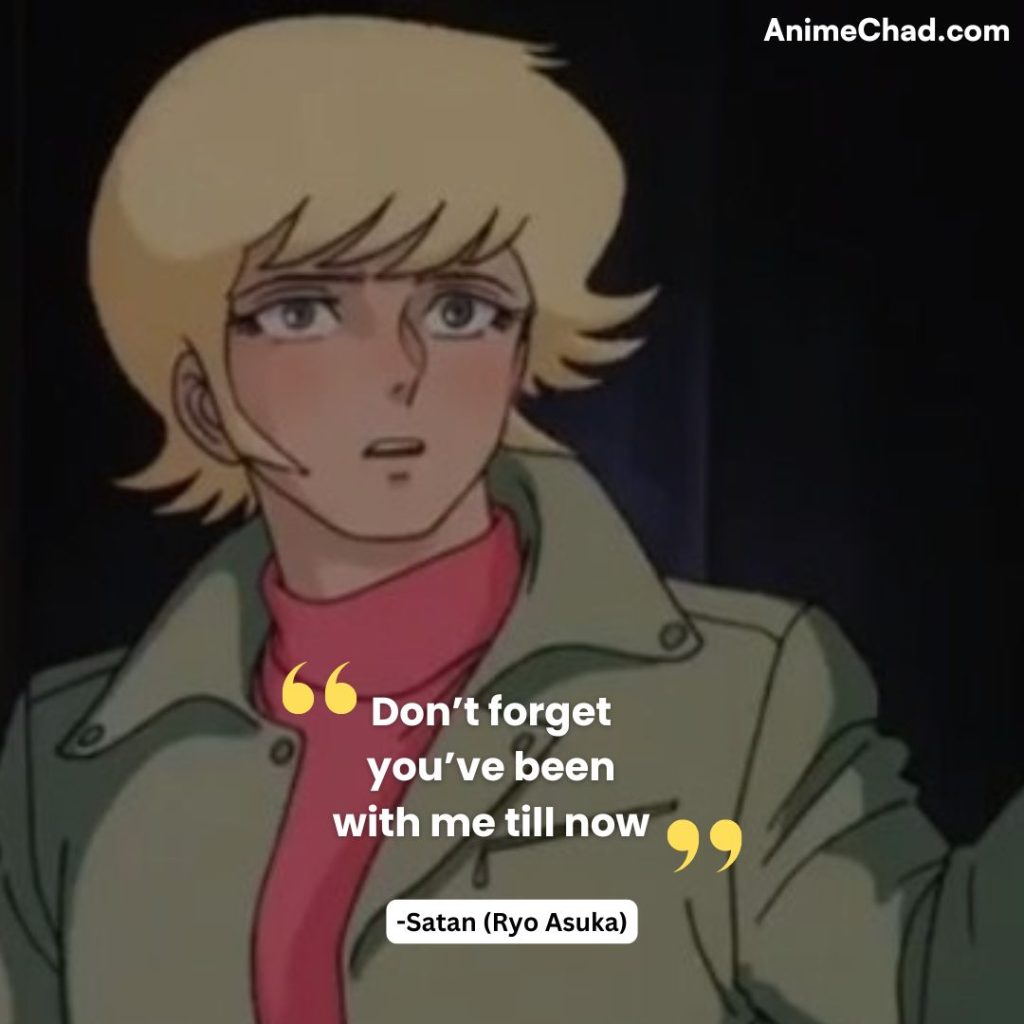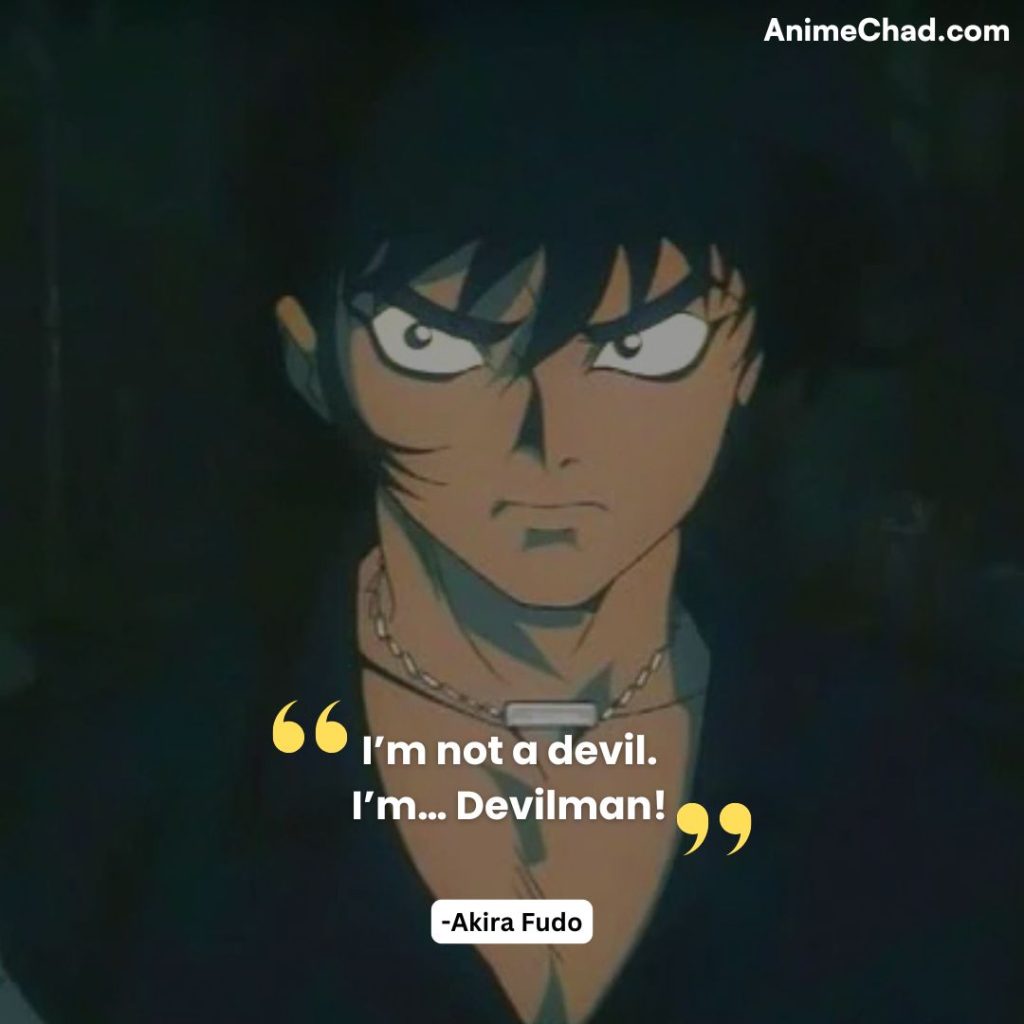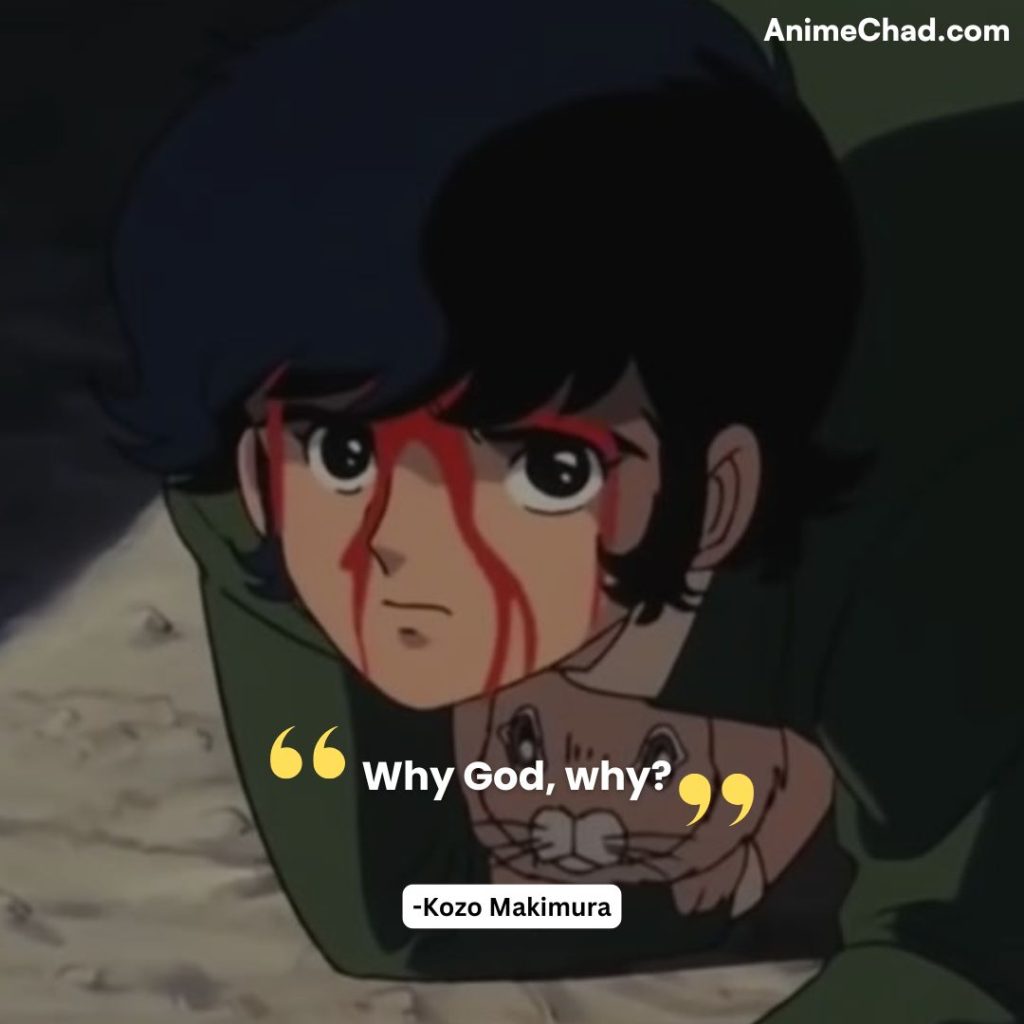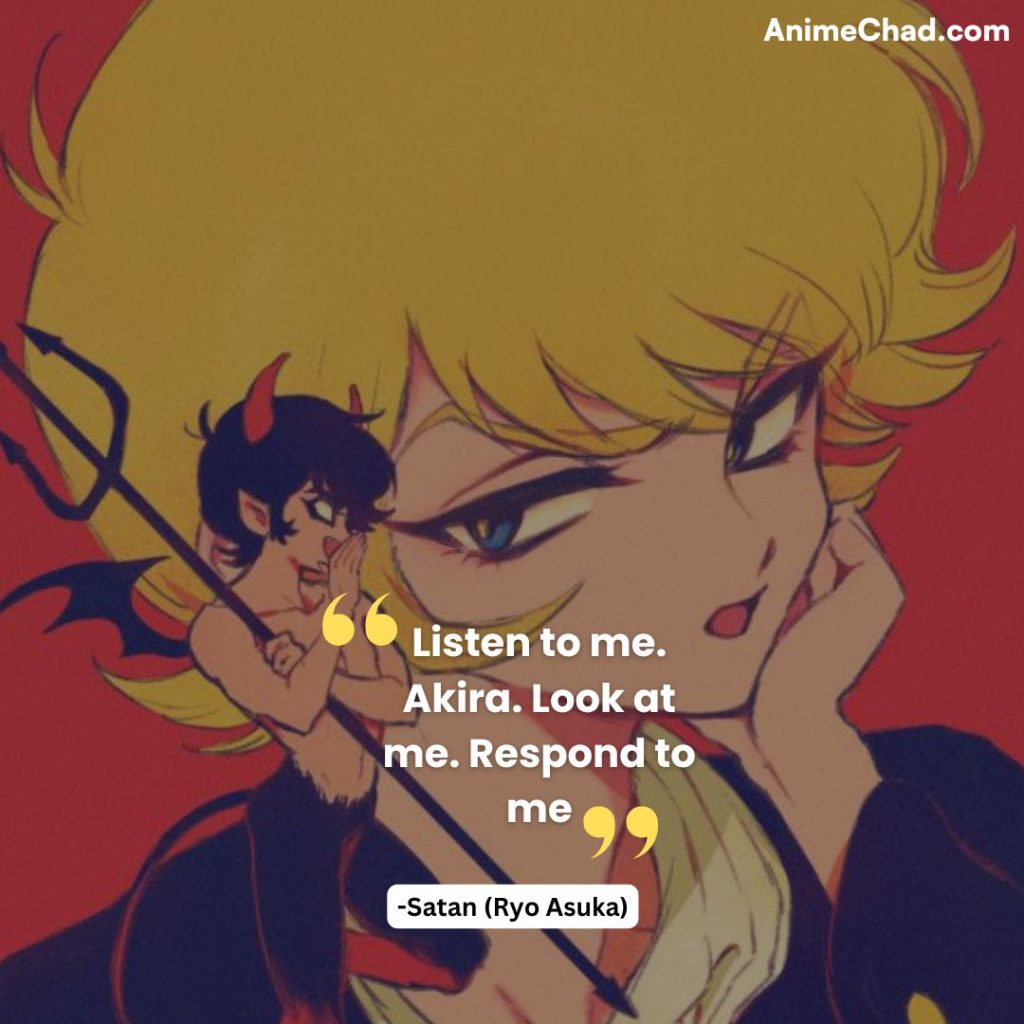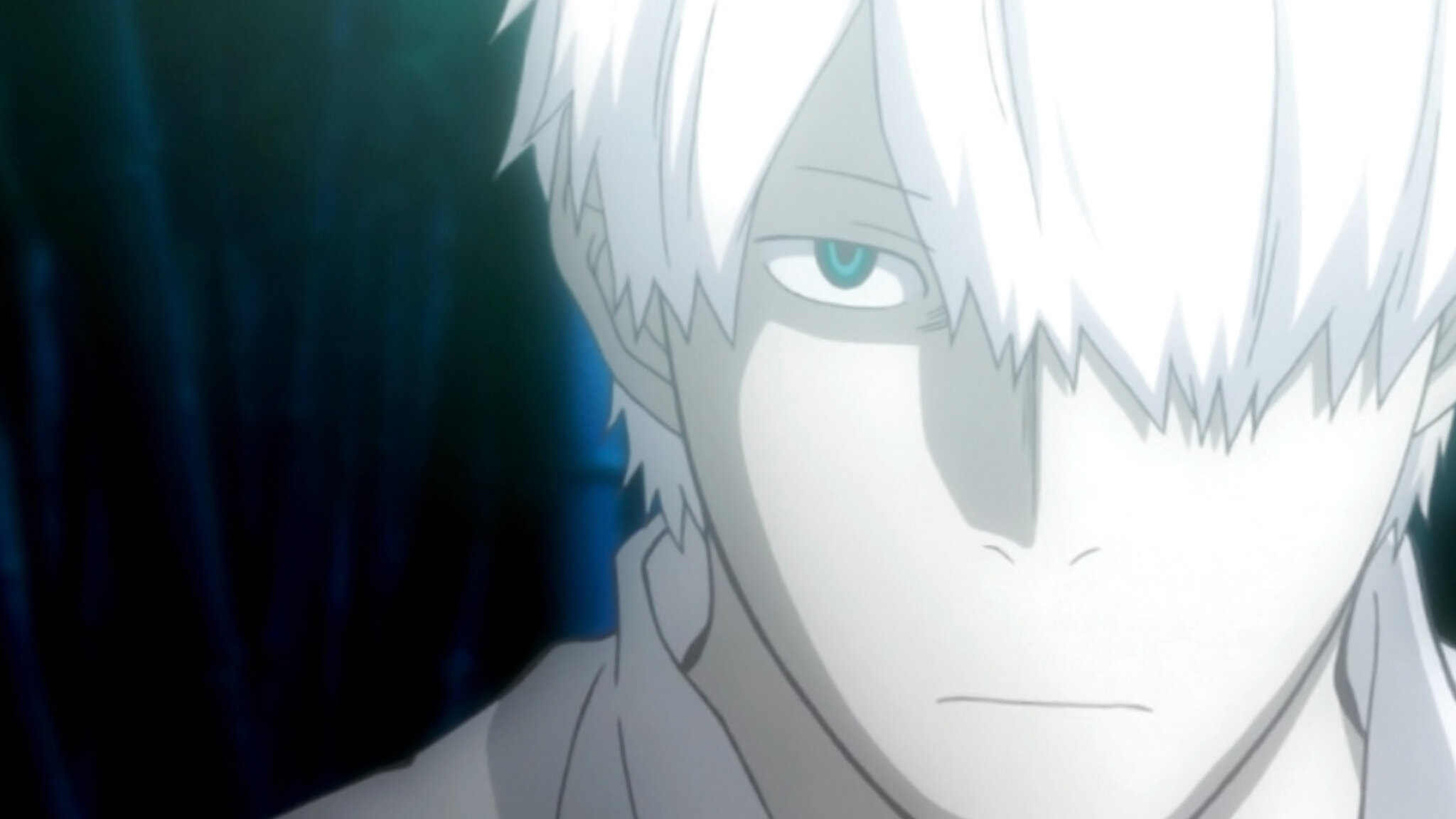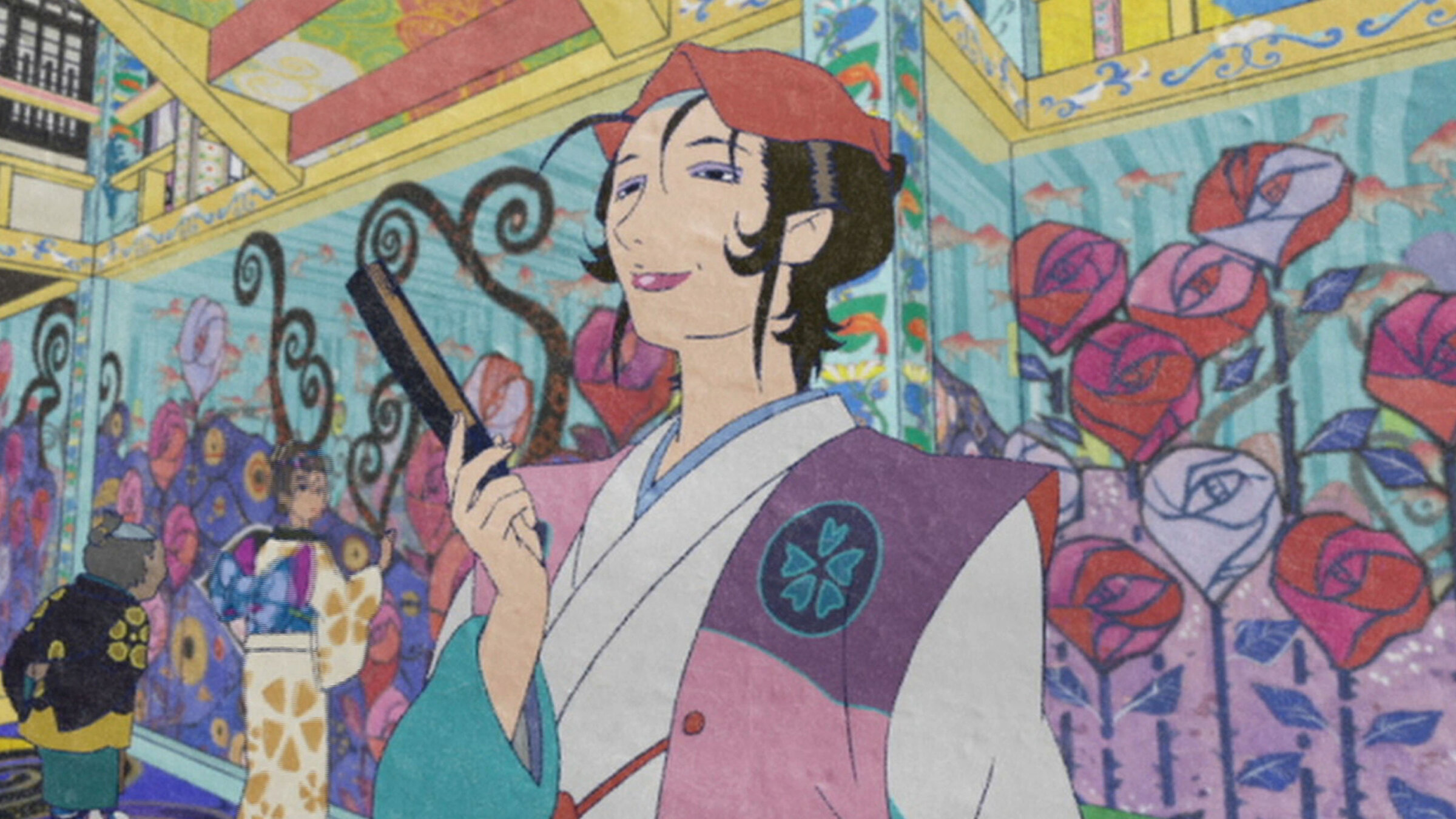Devilman Crybaby follows Akira Fudo, a sensitive teenager who merges with a demon to become Devilman, retaining humanity while battling apocalyptic forces.
The series grapples with themes of existential dread, humanity’s capacity for cruelty, and the blurred lines between love and destruction.
This curated list captures quotes that reflect the show’s visceral emotional core and philosophical depth.
You’re not a demon, you’re not a human either. You’re a devilman, and so I will save you
Episode 1 (The Day the Devil was Born)
Speaker: Akira Fudo
Context: Defines Akira’s resolve to protect hybrid beings, rejecting binary notions of good/evil.
Love doesn’t exist. There is no such thing as love. Therefore, there’s no sorrow
Episode 10 (The Final Battle)
Speaker: Satan (Ryo Asuka)
Context: Satan’s nihilistic worldview shatters as he cradles Akira’s corpse, confronting love’s reality.
When Akira cries, it’s always for someone else. He doesn’t cry at all when he’s sad himself
Episode 3 (A Quiet Home)
Speaker: Miki Makimura
Context: Highlights Akira’s empathy, contrasting his strength with humanity’s growing inhumanity.
Demons exist. There could be one right next to you
Episode 1 (The Day the Devil was Born)
Speaker: Ryo Asuka
Context: Foreshadows the paranoia and scapegoating that fuel humanity’s self-destruction.
Why do I run? When I run forward, maybe something behind me will change
Episode 4 (A Brother’s Love)
Speaker: Miki Makimura
Context: Symbolizes hope amid chaos, reflecting Miki’s optimism in a collapsing world.
You all are the ones who are Demons!
Episode 9 (The Wings of Destruction)
Speaker: Akira Fudo
Context: Condemns humanity’s mob mentality, equating their cruelty to demonic nature.
Even bloodstained, you are beautiful, Silene
Episode 6 (The False Messiah)
Speaker: Kaim
Context: Exposes demons’ twisted humanity, blending grotesque violence with tragic longing.
Taro, you’re no longer my son. This is for your own good
Episode 7 (The Fist of Justice)
Speaker: Kozo Makimura
Context: Shows familial bonds breaking under fear, mirroring societal dehumanization.
I’m not going to make a deal with a devil like you
Episode 2 (A Friend in Need)
Speaker: Akira Fudo
Context: Rejects Ryo’s manipulation, asserting moral autonomy despite power imbalance.
If more people in the world were like Akira… I think everyone would be happy
Episode 5 (The Devil’s Hymn)
Speaker: Miki Makimura
Context: Idealizes compassion as antidote to humanity’s descent into barbarism.
Wake up, Amon! Embrace me. Make love to me. Strong… and hard!
Episode 6 (The False Messiah)
Speaker: Silene
Context: Blurs desire and violence, underscoring primal instincts driving demons/humans alike.
Why am I the only one talking?
Episode 10 (The Final Battle)
Speaker: Satan (Ryo Asuka)
Context: Satan’s breakdown after losing Akira, symbolizing love’s late awakening.
Crying for other people might be a fantasy… but I’ll accept that person
Episode 8 (The Light of Dawn)
Speaker: Miki Makimura
Context: Champions empathy over prejudice, even for those deemed “monstrous.”
Weapons and vehicles are what bring out the best in human beings
Episode 3 (A Quiet Home)
Speaker: Ryo Asuka
Context: Critiques humanity’s reliance on tools to mask inherent fragility.
I promise I’ll come back
Episode 5 (The Devil’s Hymn)
Speaker: Akira Fudo
Context: Akira’s vow to Miki, juxtaposing hope against inevitable tragedy.
It’s harder to try and understand them… I’ll try not to judge
Episode 4 (A Brother’s Love)
Speaker: Miki Makimura
Context: Rejects knee-jerk hatred, advocating for nuanced understanding.
The rabbit is probably dead. There’s no rabbit in that sky
Episode 10 (The Final Battle)
Speaker: Satan (Ryo Asuka)
Context: This metaphor for lost innocence echoes Akira’s childhood memory.
Even the strongest are no match for the animal kingdom
Episode 2 (A Friend in Need)
Speaker: Ryo Asuka
Context: Underscores humanity’s fragility, justifying Ryo’s apocalyptic plans.
You are the anchor after all
Episode 7 (The Fist of Justice)
Speaker: Miki Makimura
Context: Acknowledges Akira’s role as humanity’s moral compass amid chaos.
Don’t forget you’ve been with me till now
Episode 10 (The Final Battle)
Speaker: Satan (Ryo Asuka)
Context: Satan’s plea to Akira, revealing dependency masked as detachment.
I’m not a devil. I’m… Devilman!
Episode 1 (The Day the Devil was Born)
Speaker: Akira Fudo
Context: Asserts hybrid identity, rejecting demonic corruption through willpower.
If I go forward, I feel like something will change
Episode 4 (A Brother’s Love)
Speaker: Miki Makimura
Context: Mirrors the relay race motif, emphasizing perseverance as resistance.
Why God, why?
Episode 7 (The Fist of Justice)
Speaker: Kozo Makimura
Context: Questions divine absence during humanity’s moral collapse.
Listen to me. Akira. Look at me. Respond to me
Episode 10 (The Final Battle)
Speaker: Satan (Ryo Asuka)
Context: Satan’s desperation to connect, tragically realizing love too late.
You have the heart of a human
Episode 3 (A Quiet Home)
Speaker: Ryo Asuka
Context: Ryo’s early admiration for Akira, foreshadowing his own emotional void.



